Updates and insights on the 4 July UK General Election

Election 24
The latest Election 2024 insights and updates
The Tax Factor – Episode 47
A new Prime Minister, a new Chancellor and a new Government – so what now?
A special post-Election episode recorded the morning of 5 July.
Nimesh Shah and Heather Self share their post-Election analysis and discuss the potential implications of the new Government’s policies.

What does the landslide victory for Labour mean for the property sector
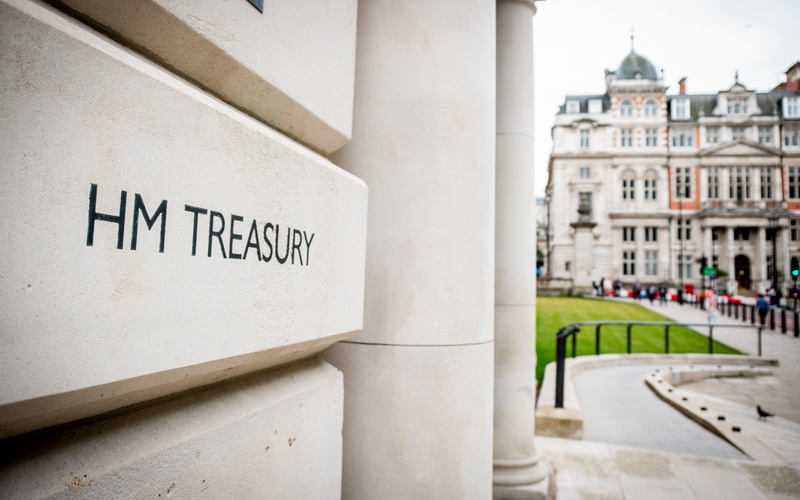
Non-dom changes must not risk UK growth

Tax rates for Americans may go up because of the UK and US elections
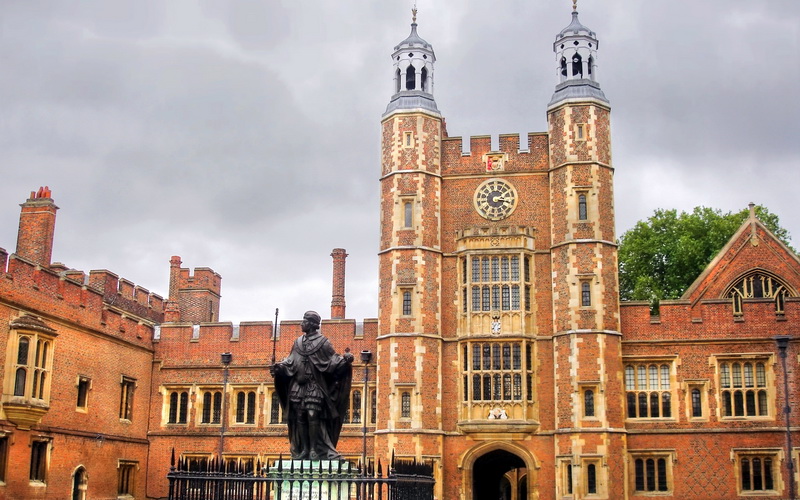
Labour’s private school VAT plans may have unintended consequences

A chance to drive economic growth and entrepreneurship

A Labour landslide – taxing times or a mandate for true reform
Election 24 – Tax Strategy
Fahad Saad talks to Robert Salter and Gabby Donald about the parties approaches to Tax Strategy.

Election 24 – National Insurance
Roger Holman talks with Tomm Adams and Robert Salter about National Insurance Contributions.

Election 24 – Child Benefit
Roger Holman and Robert Salter discuss the High Income Child Benefit charge.

Election 24 – Pensions
Roger Holman is joined by Tomm Adams who has been taking an interest in what’s in and not in the manifestos as relates to pensions.

Election 24 – HMRC
Roger Holman and Robert Salter look at HMRC service levels.


All Major Parties Tax Manifestos could lead to nasty shock for taxpayers

Tax Policies and Growing the British Economy

Election 24 – The Manifestos – The Conservative Party

Election 24 – The Manifestos – The Labour Party
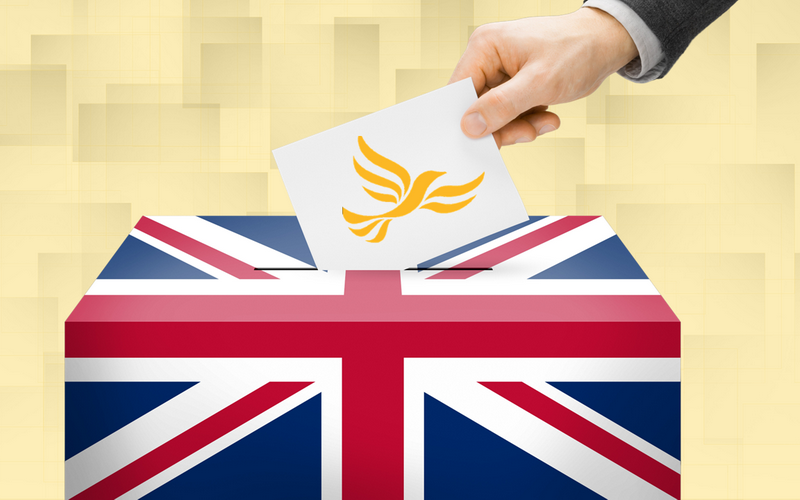
Election 24 – The Manifestos – The Liberal Democrats
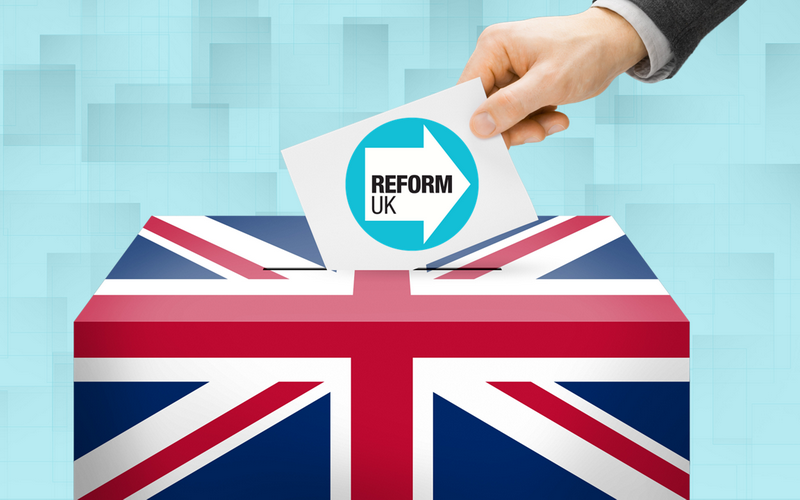
Election 24 – The Manifestos – Reform UK

Election 24 – The Manifestos – The Green Party
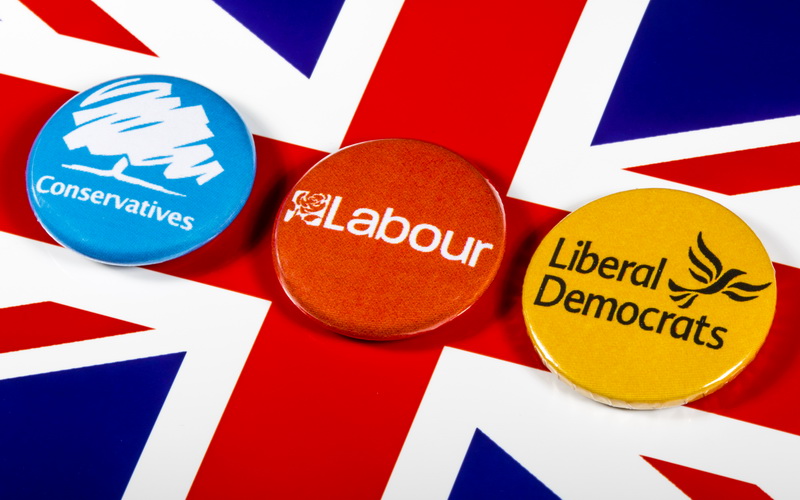
General Election party manifestos ignore punitive tax rate anomalies
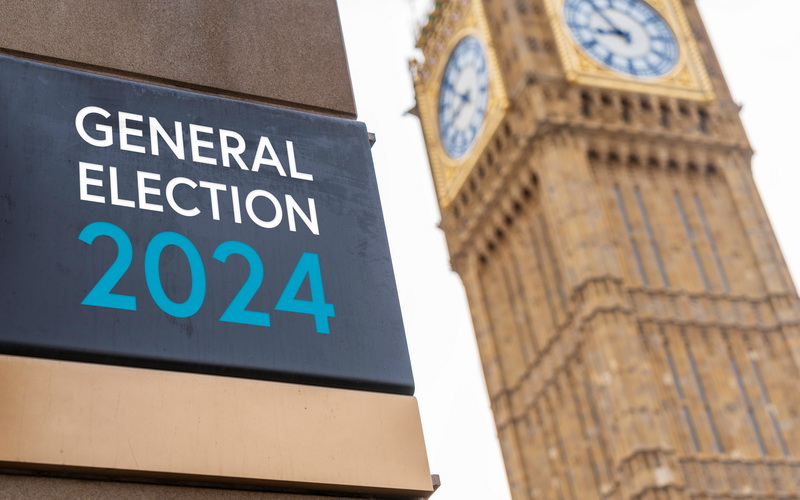
The Conservative Partys proposed higher tax allowance for pensioners
Summary of party manifestos 2024
Income tax
Guarantee no increases in income tax under the Triple Tax Lock
Pensions Triple Lock Plus, which guarantees the personal allowance will rise by the highest of inflation, earnings or 2.5%
Reform the High Income Child Benefit Charge regime so that child benefit is only clawed back when the household income reaches £120,000, and it only fully removed when household income reaches £160,000
National Insurance (‘NIC’)
Guarantee no increases to NIC under the Triple Tax Lock
Cut employees’ NIC by 2% to 6% by April 2027 – and long-term ambition to effectively abolish NIC when public finances allow
Abolish the main rate of NIC for the self-employed by the end of Parliament
Capital gains tax (‘CGT’)
No increases to CGT
2-year temporary CGT relief for landlords who sell to their existing tenants
Maintain PPR relief
Corporation Tax (‘CT’)
No increases to CT
When public finances allow, extend the ‘full expensing’ policy to leasing
Stamp Duty Land Tax (‘SDLT’) and property taxes
Abolish SDLT for homes up to £425,000 for first time buyers
VAT
Guarantee no increases in VAT under the Triple Tax Lock
Other
Raise £6bn a year from tackiling tax avoidance and evasion by the end of the Parliament
Maintain the 25% tax free lump sum and tax relief on pension contributions at their marginal rate; will not extend NIC to employer pension contributions
Income tax
No increases to income tax rates
National Insurance (‘NIC’)
No increases to NIC
Capital gains tax (‘CGT’)
Tax “carried interest” gains as income
Subsequent confirmation that PPR relief will be retained
Corporation Tax (‘CT’)
Cap CT at the current level of 25% for the rest of the next Parliament
Stamp Duty Land Tax (‘SDLT’) and property taxes
Replace the business rates system
Increase the SDLT surcharge paid by non-UK residents by 1%
VAT
Guarantee no increases in VAT under the Triple Tax Lock
Impose VAT on private school fees (and remove the business rates reliefs for private schools)
Other
£855m investment in HMRC to modernise and reduce tax avoidance
Renewed focus on tax avoidance by large businesses and the wealthy
Extend the sunset clause in the Energy Profits Levy until the end of the next parliament and increase the rate of the levy by 3%, as well as remove investment allowances
Abolish “non-dom” status, replacing it with a modern scheme – closing the “loopholes” in the Government’s plans to remove non-dom status
End the use of offshore trusts to avoid inheritance tax
Income tax
When public finances allow, raise the personal allowance to take lower paid workers out of income tax
National Insurance (‘NIC’)
No specific changes announced
Capital gains tax (‘CGT’)
Introduce three rates of CGT – 20% (for gains up to £50,000), 40% (between £50,000 and £100,000) and 45% (over £100,000)
Increase the capital gains annual exemption from £3,000 to £5,000
Introduce an inflation allowance
Corporation Tax (‘CT’)
Tackle international corporate tax avoidance and make the case for increasing the global minimum rate of corporation tax to 21%
Increasing the Digital Services Tax on social media firms and other tech giants from 2% to 6%
Stamp Duty Land Tax (‘SDLT’) and property taxes
Allowing councils to increase council tax by up to 500% where homes are being bought as second homes, with a stamp duty surcharge on overseas residents purchasing UK properties
Reform business rates and replace with a Commercial Landowner Levy
VAT
Super tax on private jet flights, and removing the VAT exemptions for private, first-class and business-class flights
Other
Restoring Bank Surcharge and Bank Levy revenues to 2016 levels in real terms
Give HMRC resources to tackle tax avoidance and evasion
Introducing a 4% tax on the share buyback schemes of FTSE-100 listed companies
Review off-payroll working IR35 reforms for the self-employed
Reviewing the tax and NIC of employees and the self-employed to ensure comparable treatment
One-off windfall tax on the super-profits of oil and gas producers and traders
Reform the taxation of international flights to focus on those who fly the most
Introduce a Sewage Tax on water company profits
Income tax
Increase the personal allowance to £20,000
Increase the higher rate tax threshold to £70,000
When public finances allow, introduce a 25% transferable marriage tax allowance
Tax relief of 20% on all independent education
All frontline NHS and social care staff to pay zero basic rate tax for 3 years
Tax relief at 20% on all private healthcare and private medical insurance
National Insurance (‘NIC’)
Increase employer’s NIC to 20% for foreign workers
Capital gains tax (‘CGT’)
Reduce the Business Asset Disposal Relief rate from 10% to 5%
Corporation Tax (‘CT’)
Reduce the main rate of CT 20%, then to 15% in the last year of the next Parliament
Lift the minimum profit threshold to £100,000
Tax relief for businesses that undertake apprenticeships
Stamp Duty Land Tax (‘SDLT’) and property taxes
Abolish business rates for high street based SME firms – this would be offset with an online delivery tax at 4% for large, multinational enterprises
Reverse the mortgage interest relief restriction for individual residential buy-to-let landlords
Cut residential SDLT rates to 0% below £750k; 2% from £750k to £1.5m; 4% over £1.5m
VAT
Increase the VAT registration threshold to £120,000
Scrap VAT on energy bills
Confirmed no VAT on independent school fees
Reinstate the VAT refund scheme for tourist shopping
Other
Introduce incentives and tax breaks to boost the UK defence industry
SME Enterprise Zones for disadvanted areas with a period of zero tax for new or existing businesses that are creating jobs
Various tax incentives for the UK fishing sector
Abolish IR35 rules
Increase the inheritance tax nil rate band to £2m, and reducing the rate to 20%
Scrap environmental levies
Lower fuel duty by 20p per litre
Reform the tax system so that it is simplified
Income tax
Aligning tax rates on investment income with the tax and NIC rates on employment income
National Insurance (‘NIC’)
Remove the upper earnings limit
Increase the NIC employement allowance to £10,000
Capital gains tax (‘CGT’)
Align CGT rates to income tax rates
Corporation Tax (‘CT’)
No increases to CT
Stamp Duty Land Tax (‘SDLT’) and property taxes
No specific changes announced
VAT
End to VAT on cultural activities
Other
Continue with windfall taxes and retaining the levy on energy companies’ windfall profits and applying another on banks
Introduce a wealth tax of 1% per annum on assets above £10m and of 2% on assets above £1bn
Cap the tax relief on pension contributions to 20%
Introduce a frequent-flyer levy
Introduce a carbon tax to drive fossil fuels out of the economy
Reform inheritance tax to close “loopholes”
Election podcasts
The Tax Factor – Episode 46
Election 24
Mind the ‘tax’ gap
In this episode, as the General Election rolls into its final week, Heather Self and Neil Insull discuss some of the challenges for the new Government (whoever it will be), the reality of the ‘tax gap’ and why it is what it is. They also look at what businesses hope to see from the tax system.
The Tax Factor – Episode 45
Election 24
Halfway already!
We’re already halfway through the General Election campaign and one thing you can bet on is that our experts have the lowdown on the parties’ tax commitments and promises.
This week, Rehana Earle and Robert Salter investigate the Labour and Reform UK Manifestos. Do both parties really understand the nuances and details of the tax system and do the numbers add up?
Finally, Robert looks at a partial victory for a taxpayer against HMRC in the first-tier tribunal.
The Tax Factor – Episode 44
Election 24
The Manifestos
As the General Election continues, Ele Theochari and Robert Salter dig into some of the detail of the parties’ manifestos, looking at the quirks, hiccups and challenges they contain.
They also look at IR35 and a new process for reporting unethical R&D advisors to HMRC.
The Tax Factor – Episode 43
Election 24
Inheritance Tax reforms, what’s in store for pensions and getting your Election facts right!
This week on The Tax Factor, Nimesh Shah and Roger Holman review some of the latest General Election tax stories.
They take a look at the parties’ proposals and ideas on Inheritance Tax and, if Sunak and Starmer were listening, what they would be suggesting.
Finally, after delving into the detail of the Conservative’s plans Nimesh, uncovers a £40m error in the ‘Triple Lock Plus’ numbers.
The Tax Factor – Episode 42
Election 24
This week on The Tax Factor Heather Self and Robert Salter are talking about the election, including extra tax allowances for pensioners, VAT School fees and the ‘magic money tree’ collecting another £6 billion from stopping tax avoidance and evasion.
They also review what the parties have shared (and what they haven’t) regarding tax policies in the campaign’s kick-off week.
No Accounting for Taste: General election tax pledges picked apart
With the election just a week away, the AccountingWEB team is joined by special guest, CEO of Blick Rothenberg, Nimesh Shah to talk through the tax pledges and promises of the major parties’ manifestos.
With just a week until the election, Nimesh reveals the reality of the Conservative, Labour and Liberal Democrat manifestos.
The panel also gives mention to some notable initiatives from the Green Party and the Reform Party, as well as questioning what will happen post-election.
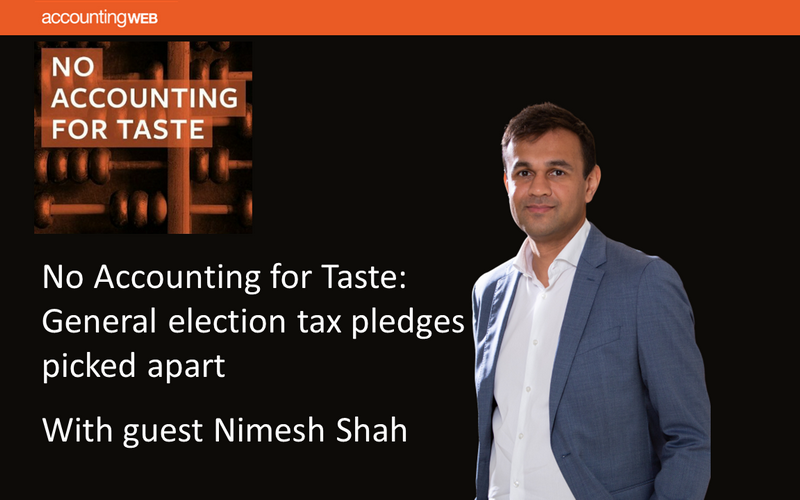
Money Clinic with Claer Barrett
What will the UK election mean for your money?
Regardless of which political party wins the UK general election on 4 July, voters fear they will have to pay more taxes.
Taxes are the crucial battleground in the run-up to polling day, and experts question whether manifesto pledges can be delivered without raising them. What aspects of our personal finances could be affected – and could a change of leadership potentially be beneficial for investors in UK stocks?
In this episode, host Claer Barrett discusses what could happen next with Miranda Green, the FT’s deputy opinion editor; Nimesh Shah, Blick Rothenberg CEO and Moira O’Neill, an FT investing columnist.
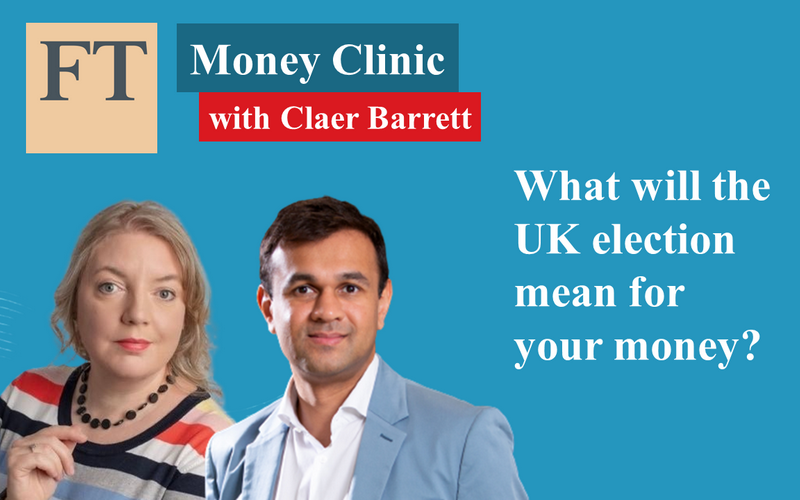
The Plan for Happy Podcast
Nimesh Shah, CEO, joins Adam Walkom in his new podcast series – The Plan for Happy Podcast.
They discuss the prospect of a Labour Government in the UK and what it means for taxation policy. Digging into the announcements, rumours and reports on what we can potentially expect in a few months’ time and looking at the opportunities a new Labour government would have.
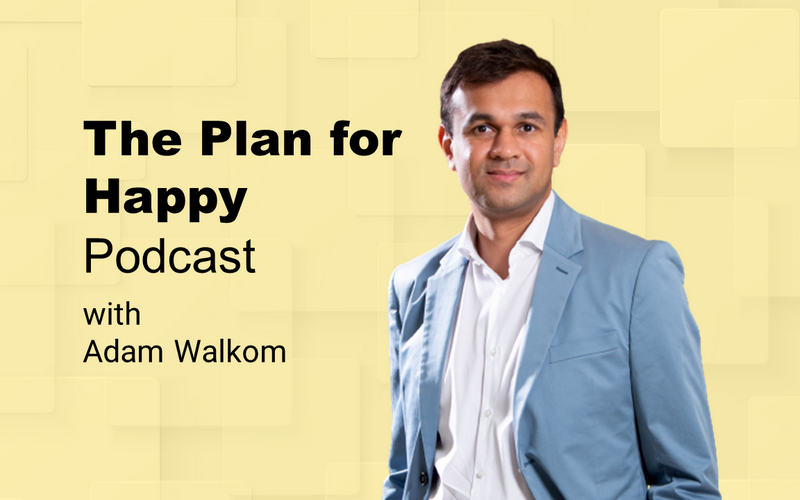

The abolition of the non-dom tax regime
In the Spring Budget 2024 Jeremy Hunt announced the abolition of the non-dom tax regime and a new modernised ‘tax holiday’ for individuals moving to the UK.
It is one of the most significant reforms to the non-dom tax regime in our generation. Many affected individuals will now face a dilemma due to the proposed rules, in terms of both their existing structures and ongoing exposure to UK Tax.
We examine what this could mean for you and how you can prepare for the changes.
Spring Budget 2024
Commentary and analysis of the Chancellor’s Spring Budget Statement
Download our TaxFax guide, which outlines key tax information, has been updated to include the latest changes from the Spring Budget.
Check the impact of the Spring Statement on your finances.
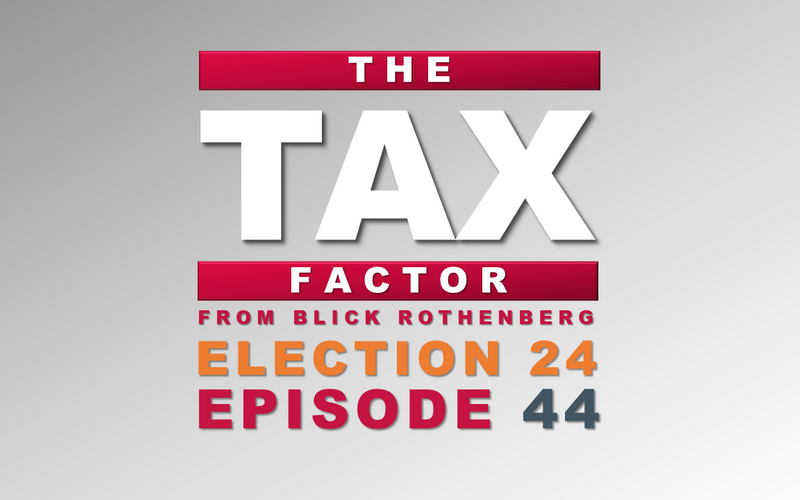
Election 24 – The Manifestos
As the General Election continues, Ele Theochari and Robert Salter dig into some of the detail of the parties’ manifestos, looking at the quirks, hiccups and challenges they contain.
They also look at IR35 and a new process for reporting unethical R&D advisors to HMRC.












